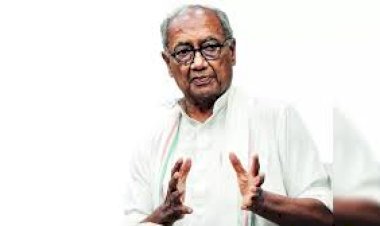
No other govt has shown more will to fight corruption
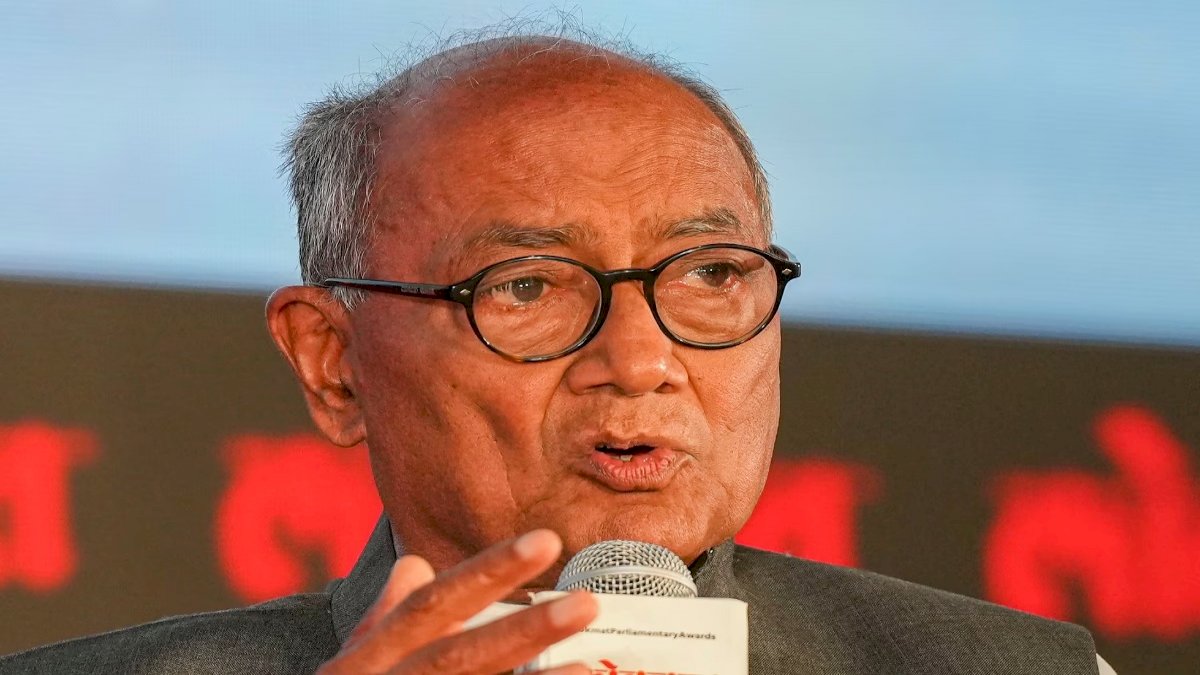
Digvijaya Singh' Blog 20 May 2013
I am extremely grateful to Arun Jaitley for responding to my Tweet relating to the observations by Supreme Court and CAT, belittling CBI and IB respectively.
For quite some time, BJP has consistently been ignoring my statements, observations and comments, hiding under the garb that they don't deserve to be responded to!
Therefore, I owe it to Arun Jaitley that he saw some "merit " in my Tweet, which provoked him enough to write an Article in response to it! I have always admired Arun as a "thinking politician" in BJP, who is quite unlike the Pracharaks of the Sangh with blinkers on their eyes and mind.
I have no objections to Judges raising queries with the Advocates or making substantive comments. But they must be substantive. Is it anyone's case that calling the Premier Federal Investigation Agency a "Parrot in a Cage" or calling IB, the Premier Intelligence Agency, a "Chicken" are substantive contributions to case?
If such tendencies are not checked, similar comments may also be made about the President of India, the Prime Minister or the Parliament.
Arun Jaitley has reasoned that due to observations, "it is always possible to correct an erroneous impression, either on facts or law, emanating from a Judge". He continued that absence of observations will "lead to miscarriage of justice since an opportunity to correct erroneous impression would be lost".
But the observations are made orally and are not part of recorded judgement. So my question to Arun Jaitley is "whether there is a legal recourse, forum or opportunity available to the person or institution against whom such an objectionable oral remark is made". I would also like to know whether his concerns regarding miscarriage of justice due to lack of opportunity are limited to lawyers only, or extend to preserve the dignity and rights of our premier institutions also.
Such remarks make Catchy Headlines and sensational Breaking News.
These remarks get permanently etched in the impressionable young minds and bring down the credibility of the Premier Institutions.
Let us keep politics aside for a while and imagine the long-term consequences of such observations, the image they create in the young minds, who go Viral on Social Media at the drop of a hat!
Another issue I would like to flag is the recent practice of Supreme Court to monitor and supervise the investigation by CBI.
CBI, constituted under Delhi Special Police Establishment Act, has a fair amount of autonomy. The Investigation Officer is usually a Class 2 officer or an Inspector and is supervised by a senior Class 1 officer. The agency has well laid down procedures and manuals built over the years and has remarkable success rate.
Why should we mistrust the functioning of the entire Organisation? I can cite number of cases in which CBI has indicted people in position of power and have given clean chit to people in the opposition. The recent case of Pawan Bansal's nephew is an example before everyone.
Moreover, there are more than 2000 cases that CBI investigates annually. In how many cases can any Court monitor or supervise investigation?
If the Court has assumed the responsibility of monitoring investigation, what would senior officers of CBI be doing?
Besides, there is another basic point that needs to be raised and addressed. It is right to fair trial for the accused. How will it be ensured in a case whose investigation has been supervised or monitored by Supreme Court.
Since the accused would be charge-sheeted in a lower court, the adjudicating Judge would be conscious of the fact that the prosecution is based on the Investigation supervised or monitored by Supreme Court. Would a junior Judge have the courage to decide against such investigation? Would the accused get a fair and impartial trial?
The Constitution clearly defines the roles of the Legislature, Executive and Judiciary. Arun Jaitley spoke about it, while he participated in the debate on the motion on Impeachment of Justice Soumitra Sen in Rajya Sabha. He said: "Separation of powers requires that every institution works in its own spheres. And if every institution works in its own spheres, it has to lay down the lakshman rekha of its own jurisdiction. But why is it necessary to lay down lakshman rekha of its own jurisdiction? What happens if one steps into the other's domain? And I must candidly confess that this attempt to encroach upon the lakshman rekha is neither coming from governments of the day in the Centre or the States nor is it coming from the Executive or the Legislature. Some serious sidestepping is coming from the judicial institution itself."
Arun Jaitley himself has said, that the time has now come for Judiciary to introspect.
The collegium system of choosing the Judges places a great responsibility on the Judiciary to choose Judges. It is now 20 years since it has been introduced. Would Judiciary introspect and assess themselves if they have chosen the best?
Haven't the Judges been instrumental in choosing their juniors, relatives and friends? Hasn’t the Caste, sometimes, been an influential criteria ?
Would the Judiciary, as suggested by Arun Jaitley, look into the quality of Judgments delivered by the Judges, who are under consideration for appointment to higher courts?
I would once again quote Arun Jaitley from the same speech, which says "when the High Courts recommend, members of the collegium share the spoils. This is an impression which close observers have. Therefore, the discretion whether the collegium system continues or we have a National Judicial Commission must also be now statutorily regulated so that arbitrariness can be avoided. After all, there has to be some objective criteria. Except elected offices, there is no other appointment which is made where there is no threshold criteria for entry. What is your academic qualification? How bright were you during your academic days? What is your experience as a lawyer? If you are a Judge, how many judgements have you written? How many have been set aside? How many have been upheld? How many juniors have you trained? How many cases have you argued? How many cases have been reported which you have argued? Have you got laws laid down? Have you written papers on legal subjects? These are all objective criteria. One cannot disregard them and say I pick up a name out of my hat and appoint him because I am in the collegium. "
I totally agree with Arun, but I am not in favour of Judicial Accountability Bill and forming a Judicial Commission for selection of Judges.
Judiciary itself has to introspect and suggest how they choose the best Judges in the service of the nation. Can they consider video recording of the Collegium proceedings for utmost transparency?
I agree it can’t be put in the public domain, but isn’t it desirable for their own credibility.
The judiciary has to restrain and acquit itself, so that the high standards of Jurisprudence, expected by all, are achieved.
As a Chief Minister of Madhya Pradesh, I had the best of relationship with the Judiciary and never hesitated in providing resources whenever a demand was raised.
It is time for all the three Pillars of Democracy, namely the Legislature, the Executive and the Judiciary to introspect and restrain themselves from encroaching on each others domain. But, of course, in a Democracy it is the ultimate responsibility of the Legislature only, as it alone represents the People of India.

No other govt has shown more will to fight corruption
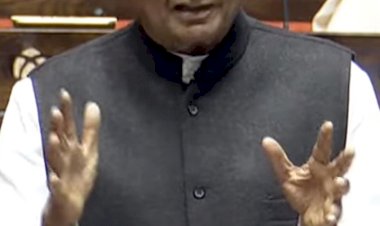
An Obituary To All Those Who Laid Down Their Lives On 25th May 2013 in Bastar
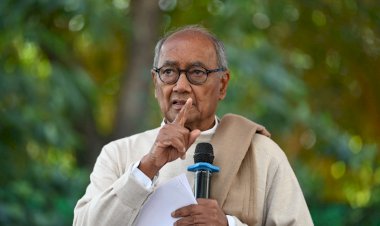
किसान और गरीब विरोधी क़ानून वापस लें प्रधानमंत्री मोदी
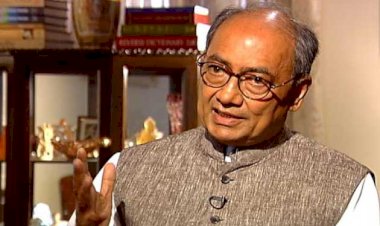
Let us show some intelligence in controlling terror
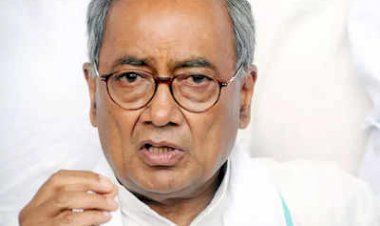
Communalism is as dangerous as Corruption

हिंडनबर्ग रिपोर्ट और सेबी तथा सरकार पर उठते सवाल